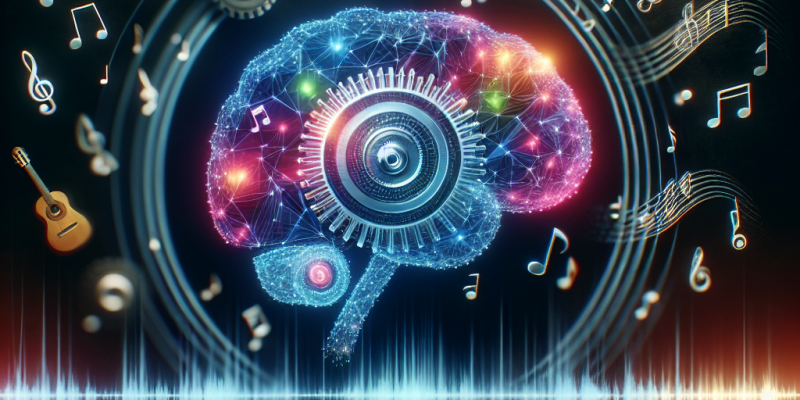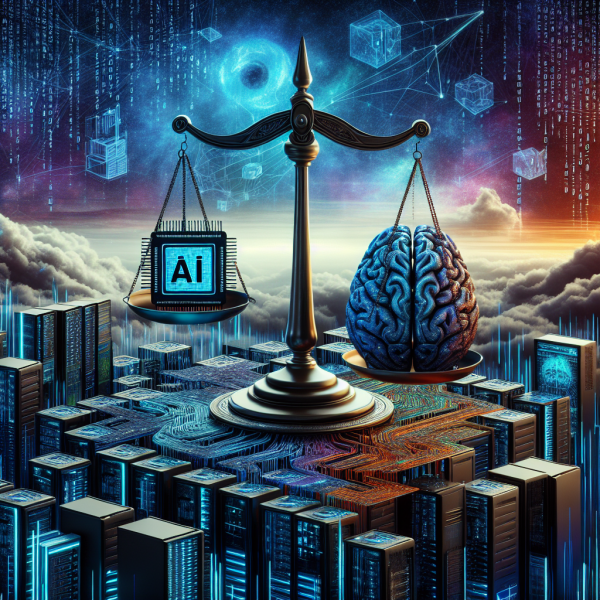Generative AI: A Game Changer in the World of Music and Audio Production

The landscape of music and audio production is undergoing a seismic shift, thanks to the emergence of generative artificial intelligence (AI). This innovative technology is redefining the ways composers, musicians, and producers create, collaborate, and consume audio content, bringing forth tools that were once considered the realm of science fiction. As generative AI continues to evolve, it is becoming an invaluable asset in musical creativity and production, ultimately changing how we experience music itself.
Understanding Generative AI
At its core, generative AI refers to algorithms that can create new content based on learned patterns from existing data. In the context of music and audio, these systems analyze vast libraries of musical compositions, instrumentation, genres, and styles to produce original pieces that reflect these influences. Popular examples include OpenAI’s MuseNet and Jukedeck, which can generate full-length songs across various genres, and Google’s Magenta project, which explores the intersection of AI and music.
Revolutionizing Composition
One of the most compelling applications of generative AI is in music composition. Traditionally, writing a song can be a labor-intensive process, requiring inspiration, skill, and often, a significant investment of time. Generative AI can assist composers by providing a plethora of musical ideas and frameworks that serve as starting points for further development.
Some AI-driven tools can generate melodies, harmonies, and even entire orchestral arrangements. This not only accelerates the creative process but also helps artists break free from creative blocks. By collaborating with AI, musicians can experiment with diverse styles, tempos, and structures, resulting in unique compositions that might not have been conceived otherwise.
Enhancing Music Production
In addition to composition, generative AI is revolutionizing music production. The technology allows sound engineers and producers to create new audio textures and soundscapes. AI-powered plugins can analyze a track and suggest complementary effects, layer additional sounds, or even automate mixing processes. This reduces the workload for producers and allows them to focus on the artistic aspects of production rather than getting bogged down in technical details.
Moreover, generative AI can assist in sound design, enabling artists to craft innovative audio samples and loops that can help define their unique sonic identity. By tapping into vast databases of audio data, AI can generate sounds that are fresh and original, pushing the boundaries of what is musically possible.
Facilitating Collaboration
Generative AI is also democratizing music collaboration. Platforms that leverage AI allow musicians from different parts of the world to work together seamlessly. This opens doors for cross-cultural exchanges and collaborations that were previously logistically challenging. With tools that can interpret and adapt to various musical styles, artists are able to blend influences from different genres and traditions, resulting in truly groundbreaking music.
Additionally, AI can act as an intermediary, suggesting potential collaborators based on musical preferences, styles, and capabilities. This not only facilitates connections but also fosters a global music community that thrives on innovation and collaboration.
Transforming Music Consumption
As generative AI makes strides in music production, it is also transforming how audiences consume and interact with music. AI-generated playlists curated by algorithms can provide listeners with highly personalized music recommendations based on their tastes and listening habits. Moreover, platforms are beginning to implement features that allow listeners to engage with AI-generated music in real-time, adapting to their mood or the environment.
The future of immersive audio experiences also looks promising, with generative AI powering interactive soundscapes for games, films, and virtual environments. Imagine a video game where the soundtrack dynamically responds to player actions or a movie that adjusts its score based on the viewer’s emotional responses. The potential for generative AI to create adaptable audio experiences is revolutionizing how we think about sound in multimedia contexts.
Ethical Considerations and Challenges
Despite its numerous advantages, the integration of generative AI in music also raises important ethical questions. The ease with which AI can replicate styles and compositions leads to concerns regarding creativity, ownership, and intellectual property. Who owns a song created in collaboration with an AI? Furthermore, as AI-generated music becomes increasingly prevalent, will it lead to homogenization in the music industry, or can it exist alongside human creativity in a complementary manner?
As the technology develops, it is crucial for artists, producers, and industry stakeholders to engage in open discussions about these topics to find equitable frameworks that foster creativity while respecting artistic integrity.
Conclusion
Generative AI is undoubtedly a game changer in the world of music and audio production. By providing new tools for composition, enhancing production techniques, facilitating collaboration, and transforming consumption habits, this technology is opening up exciting opportunities for artists and listeners alike. As we navigate this brave new world, the marriage of human creativity with AI’s capabilities promises to lead us into a vibrant future where music remains an ever-evolving art form, rich with innovation and diversity. The challenge lies in ensuring that this evolution supports and enhances the human experience of music rather than replacing it.














